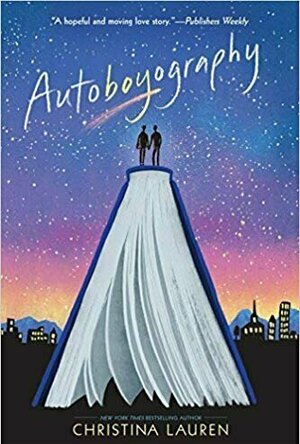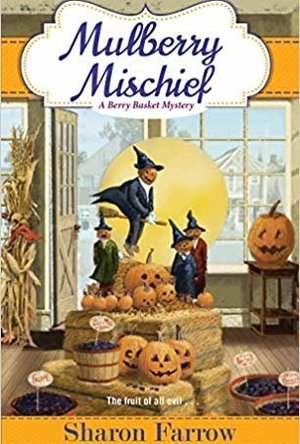
Mulberry Mischief
Book
Autumn has arrived on the shores of Lake Michigan, but Marlee Jacob, proprietor of The Berry Basket,...
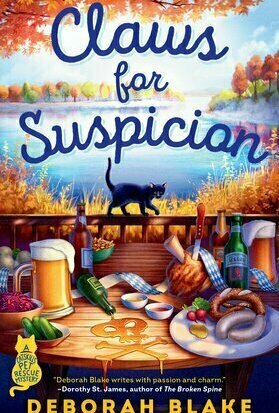
Claws for Suspicion
Book
When someone from her past comes to town to cause trouble, Kari Stuart and her sassy kitten Queenie...

Healthy Thai Cooking: 80 Great Recipes: Low-Fat Traditional Recipes from Thailand, Burma, Indonesia, Malaysia and the Philippines - Authentic Recipes Shown in Over 360 Mouthwatering Photographs
Book
Although Thai cooking can be high in fats, this cookbook makes clever use of traditional ingredients...
Heather Cranmer (2721 KP) rated Fallout (Crank, #3) in Books
Jun 6, 2018
Fallout by Ellen Hopkins is the final book in the Crank trilogy. I so wanted and expected this book to be just as great as the first two. However, this wasn't the case. It was alright, but no where near as good as Crank and Glass. Perhaps it was just because I wanted more Kristina, and she wasn't mentioned too much in this book.
Fallout follows the lives of three of Kristina's children. Hunter is the oldest at 19. He is extremely angry at his mother and can't understand why his mother abandoned him. Next is Autumn who lives with her aunt and grandfather. When the stability of her home life falls out beneath her, Autumn turns to drinking and becomes a bit of a wild child. Summer doesn't even know she has any biological siblings. She's been living in and out of foster homes her whole life for the most part. When she meets the boy who seems to love her, things start to go wrong. However, each one of them wants Kristina to acknowledge them.
The title of this book makes sense as all of Kristina's children have fallen out with her. I think it does a great job of giving you a hint about what this book will be about.
The cover of this book doesn't really do it for me. I like how the author stuck with the whole druggy looking title. However, I just didn't care for the ugly yellow background and how plain the cover looked. Perhaps that's just a personal thing as all the covers have been plain looking, but as this was told from the point of view from Kristina's children, I thought this cover would just have a different look.
The world building in Fallout is alright, but it's easy to forget which world you're in. Maybe that's just my bad memory, but I always had to remind myself which setting belonged to what character.
The pacing in this book is slower than the first two books, and is just a bit slow overall. It took me a longer time than usual to read this book because most of the time, I just had trouble getting into it. I just found myself not caring really when it came to everything in Fallout.
There's not much dialogue going on between the characters as with the first two books in the series. I thought the internal dialogue which each character was really good, and I felt like the dialogue between each individual character was appropriate for each of their age. There are a few swear words in this book so be warned if that's not your cup of tea.
I found myself not caring about the characters most of the time. I don't know if this was because I wanted more Kristina or because they weren't as well developed as Kristina. I got Autumn and Summer confused a lot of the time whilst reading since they almost seem to have the same personality. The only way I was able to tell them apart (besides it having their name printed at the top of the page when it was time for their point of view) was because of the setting, and even then it was sometimes difficult. With that said, I started off enjoying reading about Hunter as he seemed to just be a more well defined, more interesting character. About halfway through the book, I even stopped caring about him because he just became a little bit boring.
I enjoyed that Fallout was written in verse like the first two books in the series. Hopkins does a fantastic job putting words in verse and putting it into a story. I just wish this book could've been as good as the first two. Instead Fallout falls a little bit flat with the characters and the plot both leaving me feeling uncaring. Don't get me wrong, it's still an okay book, but I just think that this book didn't need to be written as not much is going on.
I'd recommend this book to those aged 15+ who are interested in learning about Kristina's children since you won't be hearing much about Kristina in this book.
Kristy H (1252 KP) rated Autoboyography in Books
Mar 19, 2020
I have a lot of complicated feelings about this book. It's wonderful to see a bisexual protagonist in YA literature, even if Tanner's bisexuality doesn't seem fully explored (and he's not always believed). This is very emotional book, and it certainly wrenched at my heartstrings. From the beginning, it seems pretty clear that there isn't going to be an easy outcome. Sebastian and Tanner are going to fall for each other. The Mormon community doesn't support their brethren being gay. Sebastian can either have Tanner or his family, right?
I also wasn't sure why Tanner's family was so against him a) coming out in Provo or b) falling for a Mormon. We learn that his family has a lot of baggage that causes this, but it was a little strange. The book's exploration of the religious aspect of Mormonism was very interesting and eye-opening, though, as a result, I wasn't sure how realistic the ending was. Still, I found the two boys' exploration and relationship to be heartbreaking and riveting.
There is a lot going on in the book--so many deep emotions, along with coverage of religion and sexuality. I found myself very protective of Tanner and trying to understand his parents, at times, even if they were supportive overall. I even felt that way about Sebastian, even though I couldn't imagine, truly, how he must be feeling, trying to reconcile his own emotions about Tanner against his religious upbringing.
In the end, I liked this one a lot even if I found some areas problematic (Tanner's parents; an incident with Tanner and Autumn; the ending wrapping up a little neatly). It was a very insightful look at religion and sexuality for these two young men and really got me thinking about a lot. Through all the angst, there was a lot of depth and feeling. 4 stars.
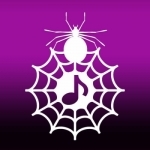
Halloween Playlist – Songs to Scare Your Friends
Catalogs, Music and Stickers
App
※※ This app includes ※※ • Our best halloween music playlist! • Effects board to scare...
The Great War as I Saw it
Frederick George Scott and Mark G. McGowan
Book
A fifty-three-year-old Anglican priest and poet when the First World War broke out, Frederick George...

Enough is Plenty: The Year on the Dingle Peninsula
Book
Foreword by Alice Taylor.An emigrant to England in the 1970s, Felicity Hayes-McCoy knew she'd return...
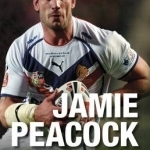
Jamie Peacock: No White Flag
Book
Jamie Peacock is the ultimate modern forward in rugby league. Taking the hard hits, making the...
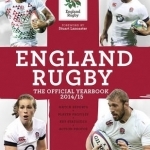
England Rugby: The Official Yearbook 2014/15
Book
England Rugby has every reason to be excited about 2015. As hosts of the IRB Rugby World Cup and...

